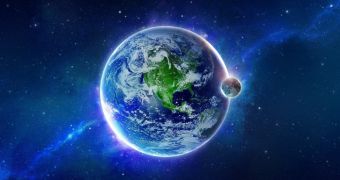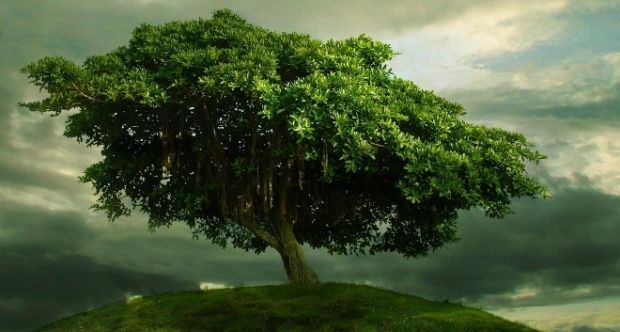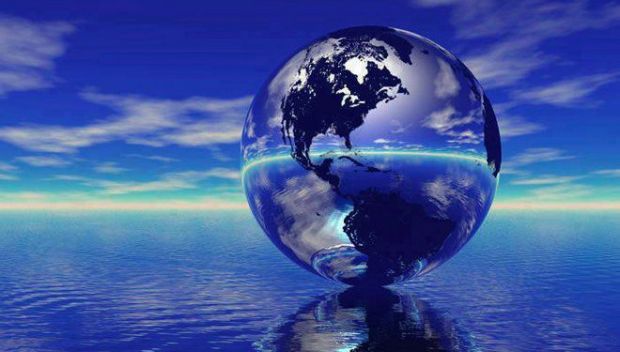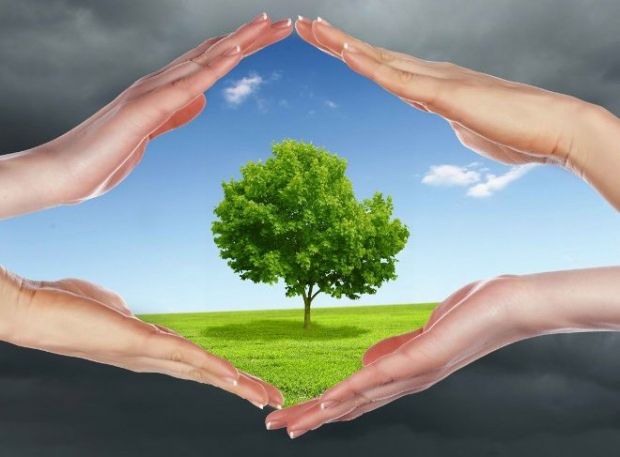I've said it before and, for those who missed my previous articles on this topic, I'll say it again: this Saturday, March 29, marks Earth Hour 2014. Nobody is going to make you sit in a corner with your back to the rest of the room if you skip this celebration, but consider this: our good old planet has been putting up with us for millennia.
Surely, we can take a measly 60 minutes to say thanks by turning off our lights and keeping them switched off for an hour. Maybe even visit Earth Hour Blue and back up a green-oriented campaign, if we're in the mood for playing the overachievers.
As fashion designers like to debut their speeches at one show or the other (OK, I don't know if they really say this, but I've heard one such line in “Devil Wears Prada” and felt like paraphrasing it), this editorial really began for me with a meditation on all the things Earth gives us and we take without bothering to show some gratitude.
I don't know about you, but, the way I see it, we're lucky Earth is nothing like Don Corleone; otherwise, we would be sleeping with the fishes right about now. And I'm sorry to say this, there is little doubt that we would totally deserve it.
But let us beat about the bush no longer. Here's the deal: to mark this year's Earth Hour, I've decided to write a piece on three things that I think we take for granted and really shouldn't. I would have gone for five, but I intend to be quite thorough, and, since odds are you're not here to read Russian novels-like articles, I've settled for three.
Without further ado, here are the three things that I believe we should take the time to look at in a new light, if not every day, at least this March 29:
Trees
If you think your boss doesn't appreciate you and your work, or, should you happen to be the boss, think that your employees don't give you credit for all your efforts to keep things running smoothly, imagine being a tree.
You start out as a seed, you bust your glorious behind to grow, it takes you decades to reach maturity, and, once you're finally old enough to get a driving license or buy liquor, some random dudes come along and cut you down. And they cut you down as if the fact that you provide home for a whole lot of creatures, or that you keep them alive doesn't even matter.
For most people, trees are just something that they chance to walk or drive by every day while on their way to work, or one really cool background for a group picture. What I wish people would understand and keep in mind is that trees don't just look pretty, they support life.
What I mean is that we shouldn't protect them just because we like what they look like, but because we need them. We need them because, as shown by several studies, both humans and pretty much all other creatures on this planet live on a fairly simple gas dubbed oxygen.
Granted, all living things also need food, but the thing is that, in order to process food, they require said chemical compound, which means that being set loose inside a McDonalds or a Pizza Hut restaurant would mean nothing if a healthy dose of oxygen-enriched air weren't also added in the mix. On the contrary, you would surely die before getting around to gulping down at least one hamburger.
To put things into perspective, it must be said that, according to a report issued by the United States Forest Service in May 2013, urban forests in this country alone store some 708 million tons of carbon, and have a yearly carbon intake of 21 million tons. Besides, it is estimated that just one adult tree sucks in about 48 pounds (some 21.7 kilograms) of carbon dioxide on a yearly basis, and produces enough oxygen to keep two humans alive.
And yet, too many people think of trees as just objects of décor and not absolutely marvelous conglomerations of cells that, simply by being alive, make it possible for a whole lot of other creatures to also go on surviving.
Water
If you live in a fairly rich or at least a medium-income country, water availability is almost never an issue, expect for the occasional broken pipe when workers pay you a visit and tell you that you should keep away from your kitchen sink for a while.
Hence the fact that pretty much everybody is clueless about how precious this resource is, and tend to waste it either by taking really long showers, or by letting the water run if the phone chances to ring while they are doing the dishes.
At this point, some might argue that wasting water cannot be all that big a deal. Since Earth is often referred to as the blue planet, surely there must be plenty of water to go around, regardless of how much time your average Joe and Jane spends in the shower.
The trouble is that, according to researchers, 97.5% of all the water on Earth is salt one, which leaves us with just 2.5% fresh water. Of this, some 70% is frozen in icecaps in Antarctica and Greenland, and a whole lot more is found either as moisture in soil, or lies deep in the underground and cannot be exploited.
Bottom line, humans have access to less than 1% of the world's fresh water resources. Not to freak you out or anything, but I also have to tell you that, when compared to all the water that our planet is home to, the reserves that mankind can make use of comprise just 0,007%.
Now, everybody knows that people need to drink water in order to survive. However, the fact is that there is so much more that water does for us except just chase our thirst away. Thus, it is used in agriculture, in food processing, for transportation, for washing, even for electricity generation.
Otherwise put, it helps the show go on, and it does so even if it is one of the simplest chemical compounds out there, i.e. one oxygen and two hydrogen atoms connected by covalent bonds. That's right, it’s simple molecules like H2O and O2 that make the world go round, and yet too few people are presently aware of this.
Clean Air
Truth be told, clean air might have been taken for granted in pre-industrial era years – it was there, all one had to do to make the most of it was to flex their diaphragms and expand their lungs, – but, in today's day and age, more and more people are becoming painfully aware of the fact that, if you want fresh air that is free of pollutants, you have to fight for it.
This is because, as talented at coughing out clean air as trees might be, the fact remains that, if we don't do our job to look after the product of their work, we're going to have a bad time. And by “bad time” I mean lung cancer, respiratory disease, even heart trouble.
In fact, it was this March 25 when the World Health Organization released a report saying that, in 2012 alone, air pollution caused a whopping 7 million deaths. Have a dictator kill these many people, and folks would jump up their seats and demand justice.
Have humanity do this to itself by burning dirty fuels, and many will probably just shrug their shoulders and think “c'est la vie” while driving in their diesel-power cars to work or to one shopping center or another. Cause, you know, figures like the ones released by the World Health Organization this past Tuesday don't really matter until you or one of your close ones is one of the 7 million people killed by air pollution.
So there you have it, the three things that I think we take for granted and fail to appreciate as much as we should. I hope this editorial has helped put things in a somewhat different light, and do share your thoughts on it in the comments section below.

 14 DAY TRIAL //
14 DAY TRIAL // 





